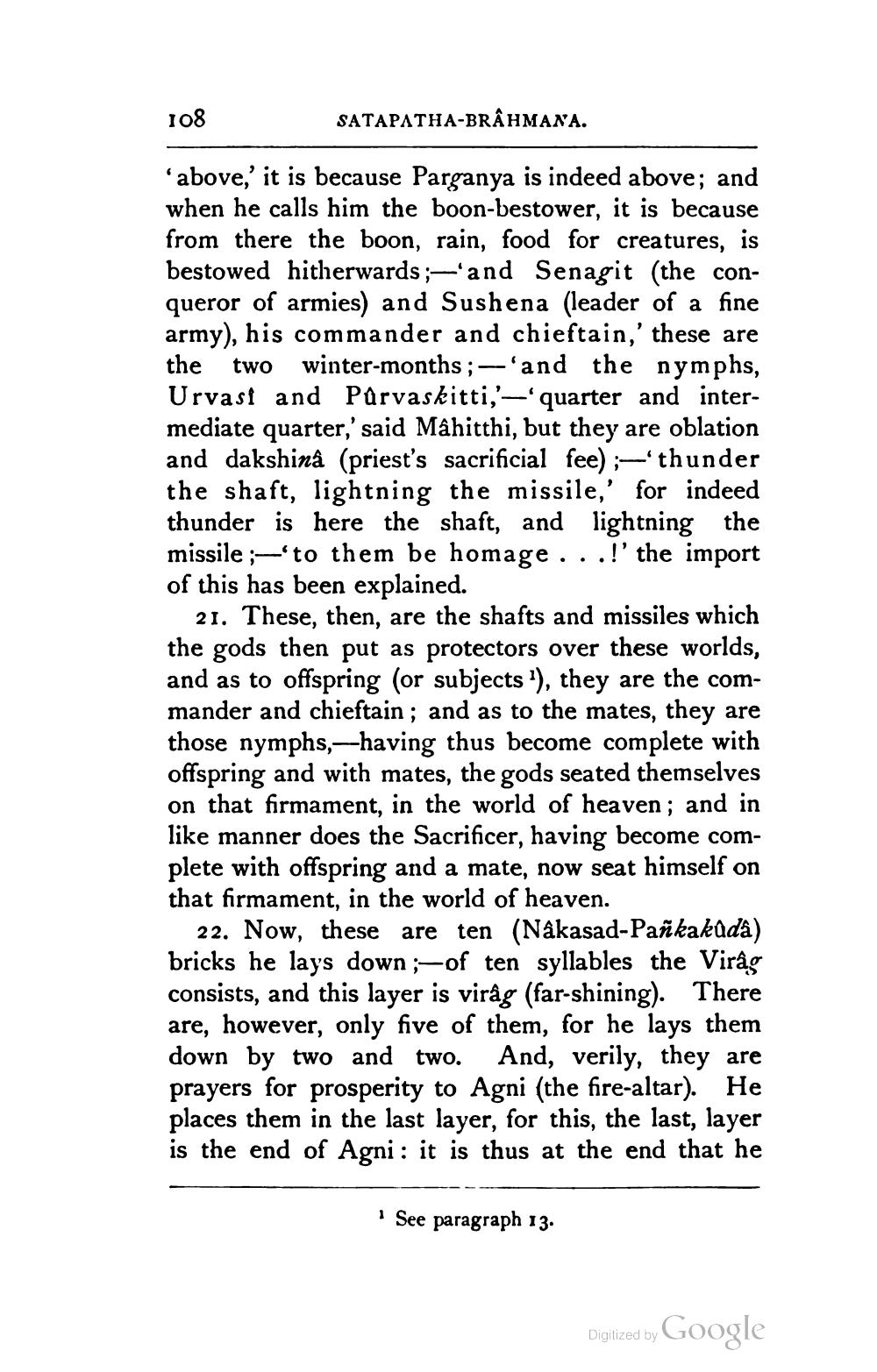________________
108
SATAPATHA-BRAHMANA.
above,' it is because Parganya is indeed above; and when he calls him the boon-bestower, it is because from there the boon, rain, food for creatures, is bestowed hitherwards ;-'and Senagit (the conqueror of armies) and Sushena (leader of a fine army), his commander and chieftain,' these are the two winter-months; --'and the nymphs, Urvast and Půrvaskitti,'-—'quarter and intermediate quarter,' said Mâhitthi, but they are oblation and dakshina (priest's sacrificial fee) ;-'thunder the shaft, lightning the missile,' for indeed thunder is here the shaft, and lightning the missile ;-'to them be homage ...!' the import of this has been explained.
21. These, then, are the shafts and missiles which the gods then put as protectors over these worlds, and as to offspring (or subjects ), they are the commander and chieftain ; and as to the mates, they are those nymphs, having thus become complete with offspring and with mates, the gods seated themselves on that firmament, in the world of heaven; and in like manner does the Sacrificer, having become complete with offspring and a mate, now seat himself on that firmament, in the world of heaven.
22. Now, these are ten (Nakasad-Pañkakûdà) bricks he lays down ;-of ten syllables the Virág consists, and this layer is virag (far-shining). There are, however, only five of them, for he lays them down by two and two. And, verily, they are prayers for prosperity to Agni (the fire-altar). He places them in the last layer, for this, the last, layer is the end of Agni: it is thus at the end that he
See paragraph 13.
Digilized by Google




